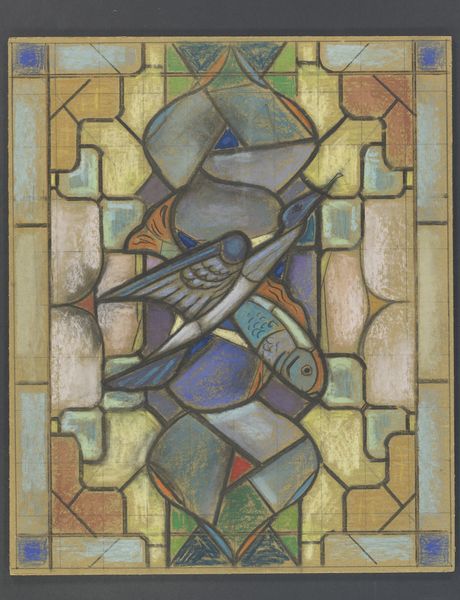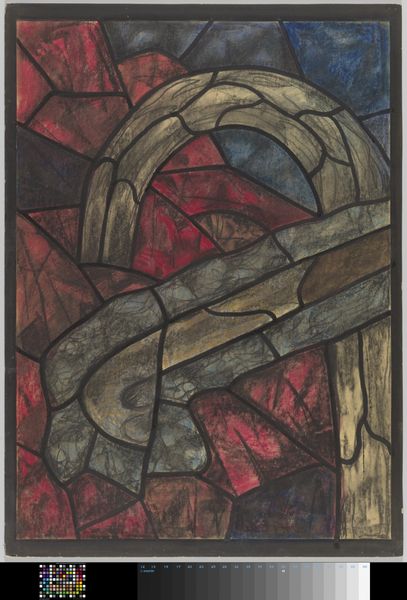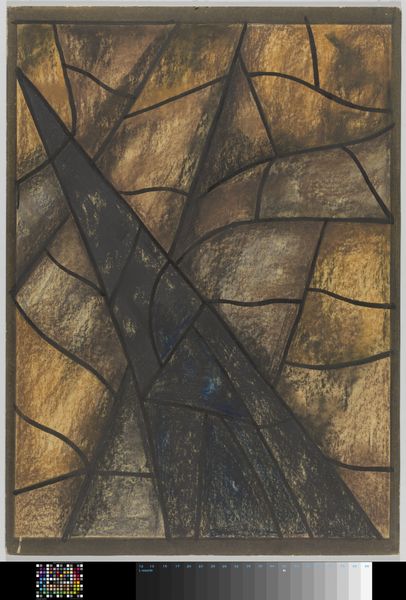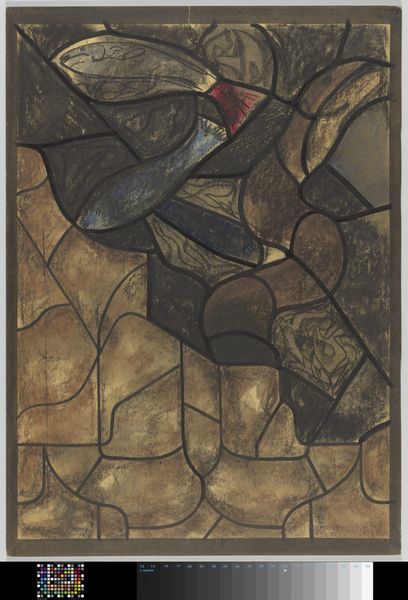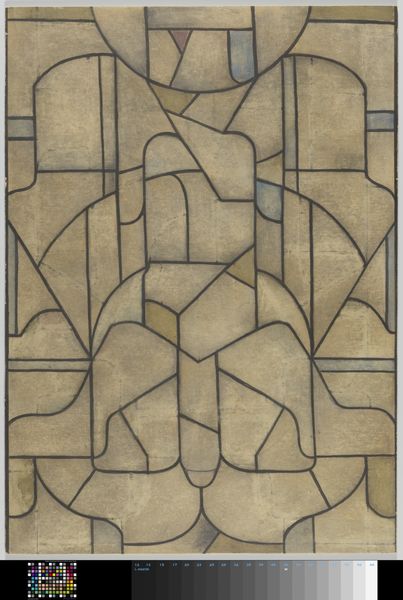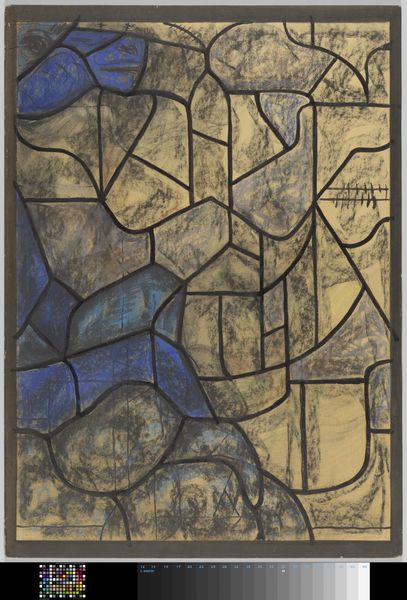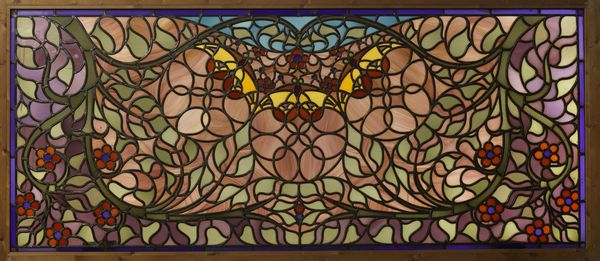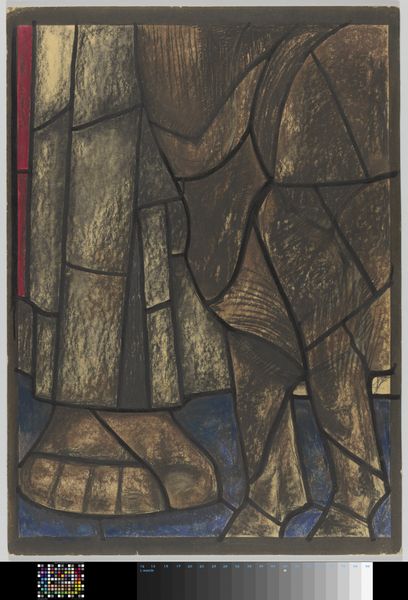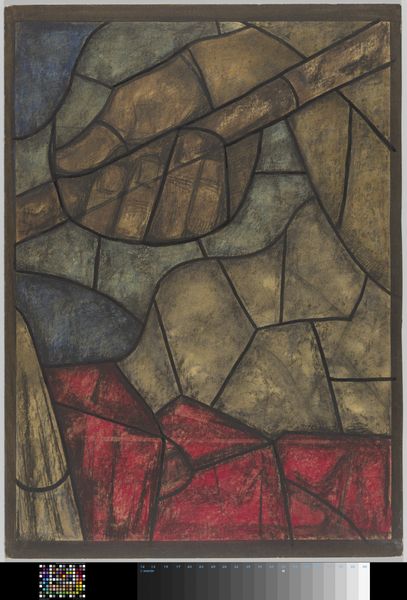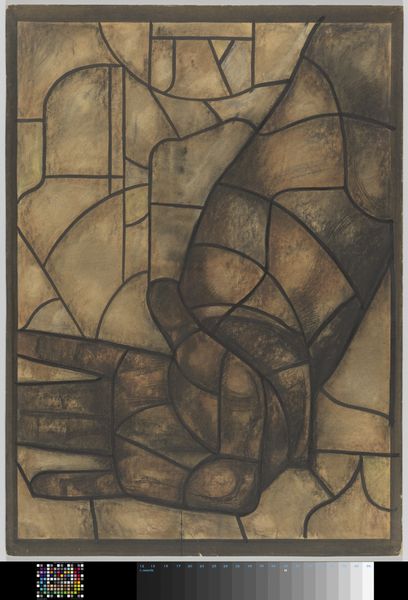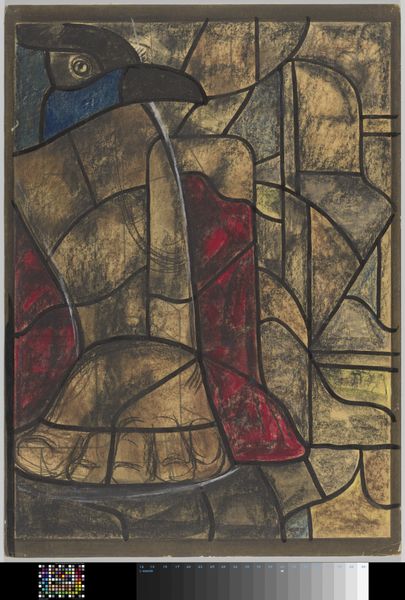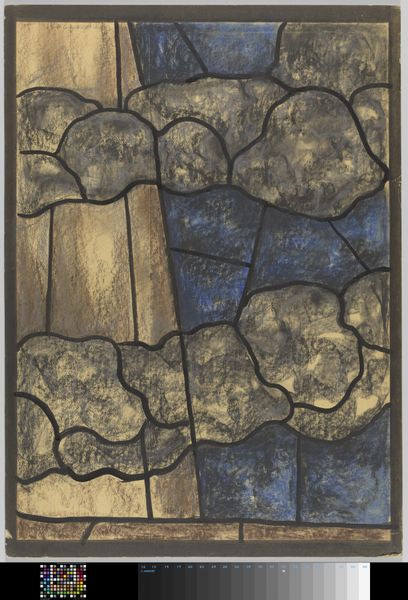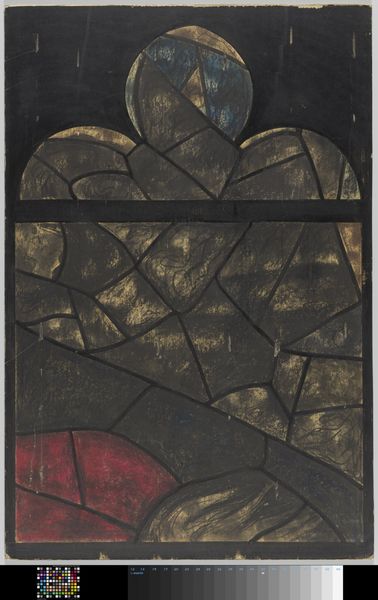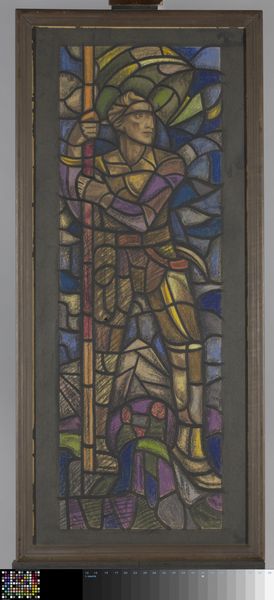
drawing
#
drawing
#
art-nouveau
#
landscape
#
figuration
#
geometric pattern
#
tile art
#
abstract pattern
#
geometric
#
stained glass
Dimensions: height 640 mm, width 530 mm
Copyright: Rijks Museum: Open Domain
Editor: Here we have Jaap Weyand’s "Ontwerp voor een glas in loodraam met twee bokken," or, Design for a Stained-Glass Window with Two Bucks, created sometime between 1896 and 1934. It’s a drawing, presumably a plan for a stained-glass piece, and I find the angularity and flattened perspective really interesting. What’s your take on it? Curator: Well, right away I’m thinking about the context in which Weyand was working. Art Nouveau at the turn of the century was intensely interested in democratizing art, wasn’t it? Artists wanted to break down the barriers between the fine and applied arts. Does this design suggest a specific commission or client to you? Editor: Not that I can discern from the title, it seems more like an exploration of the style than anything else. I mean, who would want two bucks in stained glass, really? Curator: I disagree; this design, while beautiful in its own right, makes a statement about the role of art in everyday life. By designing stained glass – typically reserved for churches or wealthy patrons – Weyand could have been subtly promoting the idea of art for the masses, transforming everyday spaces. What about the animals depicted; how were animals viewed at that time? Editor: That's a fascinating question! There’s a resurgence of interest in the natural world at this time. But putting the natural world into geometric frames and flat colour planes seems very calculated. I wouldn’t exactly call it a “naturalistic” rendering. Curator: Right, there’s a deliberate tension there. Weyand might have been commenting on humanity’s relationship with nature – how we seek to control it, to frame it, even to display it as if it were an object of art. Do you see it this way as well? Editor: Absolutely! Framing it that way opens up a whole new level of interpretation for me. I hadn’t really considered the political context so deeply. Curator: Thinking about art in terms of the cultural landscape always adds more food for thought.
Comments
No comments
Be the first to comment and join the conversation on the ultimate creative platform.
